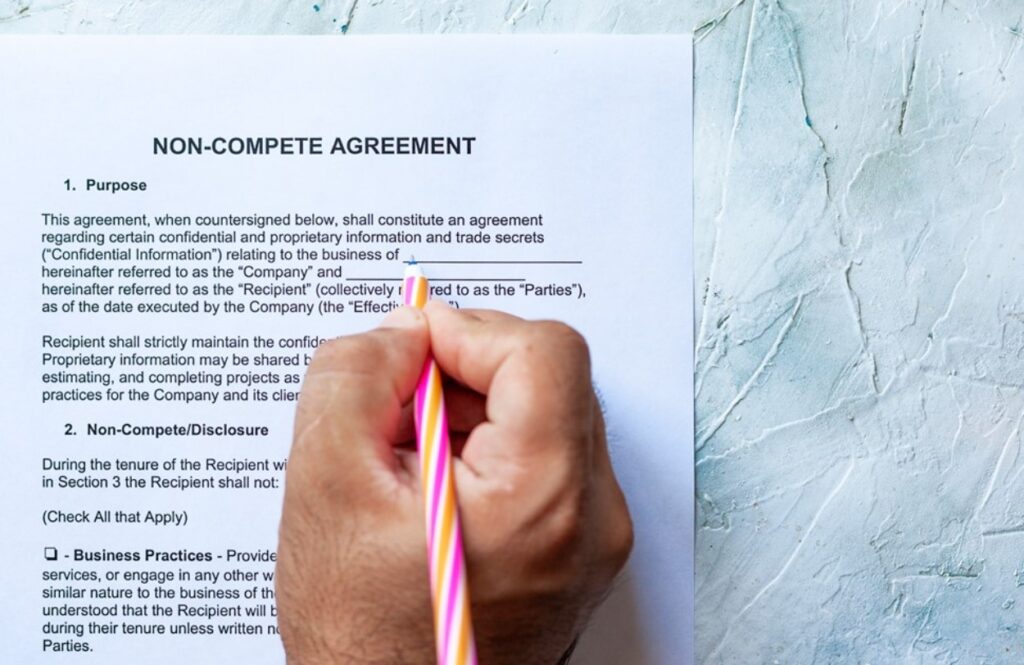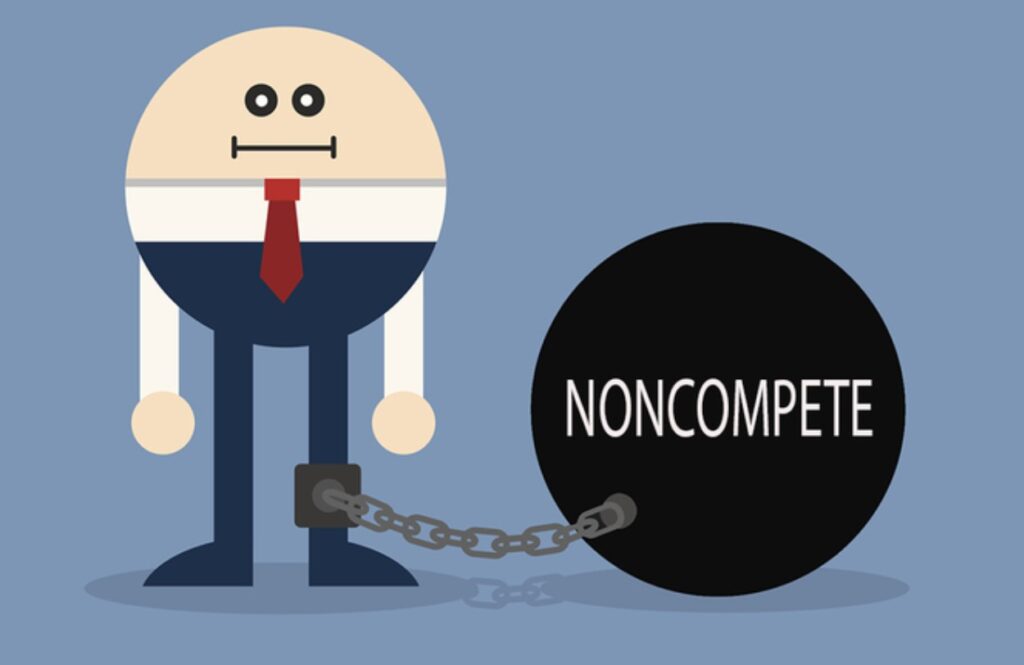
If you are an employee in the United States, you have probably heard about non-compete agreements or clauses commonly known as restrictive covenants. If you haven’t, well, you have come to the right place. The law of contracts regulates non-compete agreements, and most employers choose to include a non-compete clause within the employment contract instead of having a whole separate agreement. As the name suggests, a non-compete agreement is an agreement wherein an employee agrees not to engage in a similar business or profession as the current employer to avoid gaining a competitive advantage over the employer.
Non-compete agreements are meant to guard against the use of confidential information upon the resignation or termination of employment. Since such agreements are all about safeguarding the employer’s best interest, an employee can easily end up in a disadvantaged position. Further, there are many factors a non-compete agreement has to comply with, like the law of contracts. As an employee about to sign a non-compete agreement, the best way to safeguard your interest is to consult a lawyer. A non compete attorney such as Cantrell Wetsch is all about ensuring that every employee that comes to our office signs a non-compete agreement devoid of red flags.
A majority of employers in Miami focus on creating standard contracts. For this reason, most employees end up blindly signing such contracts without paying attention to the contents. The only way you can avoid signing contracts containing disadvantageous non-compete clauses is to read the agreement’s contents before appending your signature. Suppose you have any difficulties understanding the contents of your non-compete agreement. In that case, you can reach out to a non compete attorney for an in-depth explanation of each clause and subsequently help you identify any available red flags. Pay attention to the following red flags before signing a non-compete agreement for your new job:

Unfair Indemnity Clauses
One of the characteristics of employment contracts is that they have an indemnification clause whose role is to compensate an aggrieved party in the event of a breach of contract. As earlier mentioned, non compete agreements are meant to protect employers from disadvantageous competition from their employees upon resignation or employment termination. Therefore, disclosing trade secrets or working with a former employer’s competitor to the disadvantage of the said employer amounts to a breach of contract. Employers ensure that they include an indemnification clause in the non-compete agreements to hold an employee accountable for the breach.
Often, the indemnification clause is all about the actions an employer should undertake in the event of a breach to the exclusion of the employee’s rights. Most employees don’t know that an indemnity clause in a non-compete agreement should include their rights. Before you finally sign that contract, always ensure that you are signing a contract that has factored in your rights as well. Our attorneys can always assist you in reviewing a non-compete agreement to ensure that your interest is represented.

Non Compete Clauses Without Timelines
An employer has a right to protect their interest through the inclusion of a non-compete clause in an employment contract. The clause should not be included with the intent of frustrating the employee for their lifetime. Employees have a right to exploit your talents, knowledge, and skills by working wherever you want. Two of the things that need to be included in a non compete agreement time and geographical radius. A reasonable non-compete agreement should have a timeline of between a year or two, directing the duration the employee is expected to act following the agreement.
The radius outlining the geographical location within which you can’t engage in similar trade as the employer should be reasonable; if the non-compete agreement is not explicit on the timeline and geographical location. A former employer might bring a suit against you for breach of contract even several years after leaving their former job. To avoid such issues, always ensure that the mentioned factors are fair and transparent before signing the non-compete agreement.

Limited Time Allowed For Review Of The Non Compete Agreement
The time you are required to sign and submit the non-compete agreement is not part and parcel of the agreement. However, it is expected that an employer allows you reasonable time to review and sign the agreement and append your signature. You need ample time to personally go through the agreement and also contact your attorney if necessary. If you realize that your prospective employer is pressuring you into signing the non-compete agreement, then that is a red flag that might indicate that the agreement is filled with red flags. Instead of blindly signing it to secure the job, request more time for review and signing.

Restrictions On The Use Of Intellectual Property
Some of the benefits employers enjoy during employment are their employees’ intellectual property. Therefore, an employer using your intellectual property is something you should expect. Note that what the employer owns is the result of your intellectual property and not the intellectual property. Meaning dependent on the agreement between you and your employer, you can still use your intellectual property outside your employment. Some employers may hold you in breach if you are not clear on your rights to use your intellectual property during employment and even after. Always remember that such property is protected under the law, and you have all the ownership rights. A non-compete agreement whose provisions on intellectual property are not explicit should serve as a red flag. For more information on what rights you have over your intellectual property during employment, contact a non-compete attorney such as Cantrell Zwetsch.

Confidentiality Requirements That Prolong Outside Work
During employment, an employer will require 100% commitment. To guarantee such commitment, the employer might include a confidentiality clause in the non compete agreement. The purpose of the confidentiality clause is to deter any outside projects that an employee might engage in, putting the employer in a disadvantaged position. Some confidentiality clauses might prevent you from engaging in outside projects during employment and preventing future business endeavors. Such clauses are red flags indicating that you are about to commit to an unhealthy working relationship that might extend into your future.

A Non Compete Agreement Against The Public Interest
While an employer has every right to protect their business, it is illegal to do so at the public interest expense. A non-compete clause is supposed to create healthy competition and not result in a monopoly. Most times, courts have found non-compete agreements with stringent provisions to be illegal because such agreements are against the public interest. At times it is not easy to realize that a clause is illegal. Ask for assistance from an attorney whenever you can if you intend to protect your interest and that of the larger public.
Remember that upon the termination of employment, you will still need to earn a means of livelihood. Therefore getting into unfavorable non-compete agreements can hinder such endeavors. The employer’s intent will always be to get you to sign the agreement, but the onus to represent your interests and claim your rights is on you. Understanding every clause of a non-compete agreement requires a proper understanding of contract and employment law. With the legalese often used in such laws, you should contact an attorney for any questions on non-compete agreements that you might have.
















